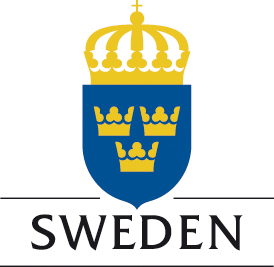
This article examines the process of unionising migrant domestic workers in Lebanon. This process was undertaken by a number of international and local NGOs and the Federation of Workers and Employees Unions in Lebanon (FENASOL). The article highlights the potential of, as well as the obstacles confronting the workers in building their union. These obstacles pertain to the many fields of power they have to negotiate or challenge on the level of the state, NGOs and the Federation’s leadership. Through fieldwork, participatory observation and in-depth interviews conducted with union activists, the article focuses on the gendered and racial dynamics and relations between the workers forming the union and the Federation’s leadership, as well as their relation to the Lebanese state. Their case compels us to consider the challenges that the feminisation and internationalisation of labour pose for the existing trade unions’ structures and the ways we envision labour and social movements in general.
Read the article in Arabic here.
“Like an ant that digs into the rock:” Wadad Halwani and the struggle of the families of the missing and the forcefully disappeared
By: Miriam Younes

This article recounts the personal story of Wadad Halwani, a woman whose husband got kidnapped in the midst of the Lebanese civil war, focusing on her agency and strong will in her struggle. It goes over her activism as part of the Committee of Families of Kidnapped and Disappeared in Lebanon, as well as the achievements of the committee and the obstacles it faces.
Read the article in English here.
On Mixed Identities, Racism, and Activism in Lebanon; A Discussion with Nisreen Kaj
By: Léa Yammine

This article highlights the trajectory of Nisreen Kaj, and looks into the intersectionality of racism. It goes over her activism on racism issues on an individual level, through through several organisations, and through her project “Mixed Feelings”, which explored racism in Lebanon through the experiences of Lebanese of African or Asian heritage.
Read the article in English here.

The three articles above were first published in the 2nd issue of the Civil Society Review: Lebanese, refugee, and migrant women in Lebanon: From sociopolitical marginality to turnaround strategies.
This issue of the Civil Society Review aims to bridge a gap in knowledge by addressing the lack of empirical data and gender-based analyses on the experiences of women in Lebanon, including refugees, workers, and migrants. It sheds the light on various spheres of engagement of women in Lebanon.
The preview of this issue is available online on this link, with the articles of the issue published in English, Arabic, or French published on the Gender Equity Network here.
2. Newest gender organisations registered on Daleel Madani

United Nations Entity for Gender Equality and Empowerment of Women
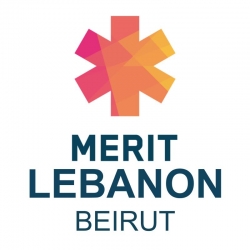
World Merit Lebanon - Beirut Council
*You can view other organisations and civil society actors on the Civil Society Directory of Daleel Madani. If your organisation would like to register on Daleel Madani, please register here
3. Events Lebanon Support organised and participated in
Gender Afterworks - The Long Road to Reforming Personal Status Laws in Lebanon

On the 3rd of October, Lebanon Support hosted its 3rd Gender Afterworks discussion on personal status laws in Lebanon. The discussion is the third in a series held under the Gender Equity Network, a project that is part of the Civil Society Knowledge Centre, and aims at filling the gaps found in literature and knowledge on gender issues easily accessible. This event was organised in partnership with KAFA (enough) Violence and Exploitation. It was led by Ms Leila Awada, lawyer, founding member of Kafa (enough) Violence & Exploitation, and head of the Legal Unit at Kafa, and Judge John Azzi, judge at the Court of Cassation in Lebanon since 2010, and moderated by Maya Ammar, a feminist activist and a member of KAFA.
Check the full summary of the 3rd Gender Afterworks on our Gender Equity Network, here.
The Women Empowered for Leadership workshop: “Equality is not a Given”
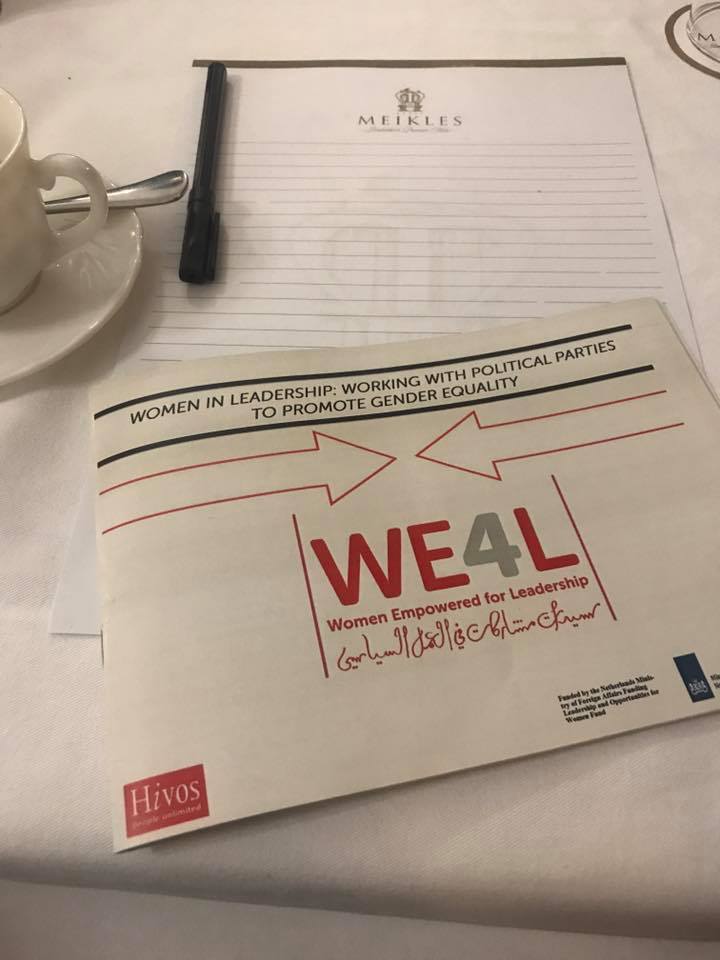

Lebanon Support took part of the Women Empowered for Leadership workshop titled “Equality is not a given”, organised by Hivos, and which took place in Zimbabwe.
The workshop brought together actors from 5 different countries from MENA and Africa so as to exchange knowledge and explore how they can build on best practices and learn from each other’s experiences.
4. FOCUS ON
#16DaysofActivism
What is the 16 Days of Activism Campaign?
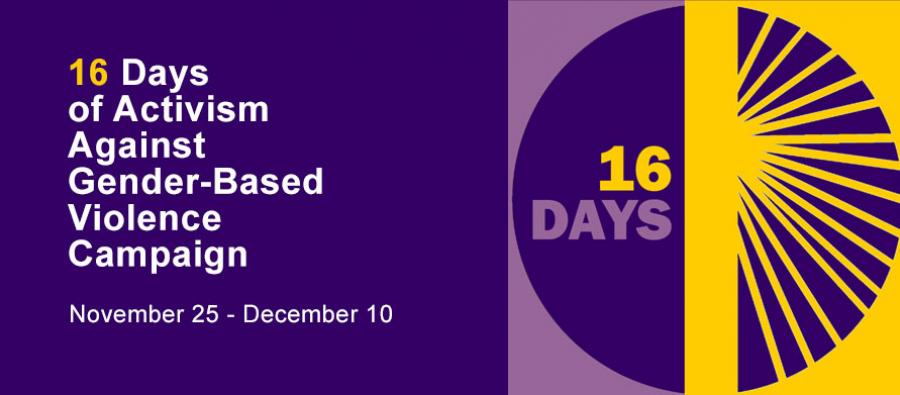
The 16 Days of Activism against Gender-Based Violence is an international campaign which takes place each year and runs from 25 November, the International Day for the Elimination of Violence against Women, to 10 December, Human Rights Day.
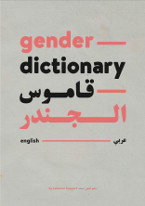
What is violence in a gender context? Lebanon Support’s bilingual Gender Dictionary: Traveling concepts and Local Usages in Lebanon gives a definition of the term, and how it can be used by civil society actors, activists, and researchers in Lebanon. Read the definition here.
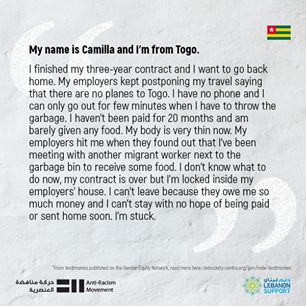
Lebanon Support has been developing resources and tools on its Gender Equity Network that help develop a better understanding of terms like Violence Against Women and Gender Based Violence, in addition to tracking violence on others such as the mapping of incidents of violence against women, and the Migrant Domestic Workers Testimonies.
The 16 Days of Activism Campaign in Lebanon
Local and international civil society organisations in Lebanon contributed to this year’s campaign, each in their own way. Many of them launched campaigns digitally, while others transferred their messages through on-the-ground events.
Below is an overview of some of these organisations’ work within the 16 Days of Activism campaign:


KAFA (enough) Violence & Exploitation focused on sexual violence through an awareness raising campaign titled #ThisIsAlsoSexualViolence (هيدا_كمان_عنف_جنسي), and which aired notably via animations on local TV news. They also organised a regional conference, at the end of the 16 Days of Activism campaign, in which it launched its legal model to oppose to violence against women and girls in Arab countries. While, The women’s rights program at Najdeh Association organised a round table in Nahr el-Bared camp, about the participation of the women in the political and social life.
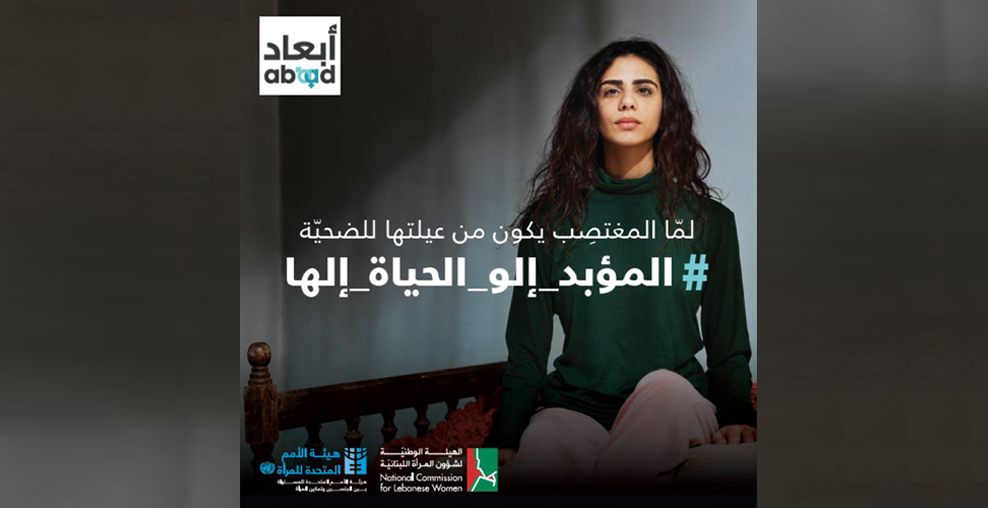
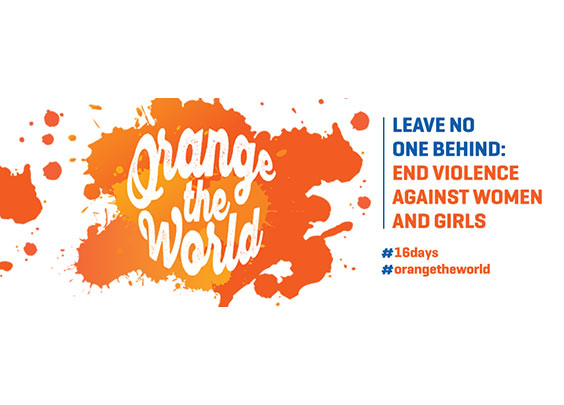
Abaad’s campaign aimed at amending Article Seven of the Lebanese Penal Code into a law that maximizes prison sentences of perpetrators of incest rape. While, the Gender Working Group (GWG) of the United Nations System in Lebanon, developed and implemented an informative and promotional campaign on gender-based-violence (GBV) and gender inequality in Lebanon.


The Delegation of the European Union organised on the 3rd of December a public event on Beirut's Corniche under the slogan: “Stop Violence against Women.” The objective of the event was to raise awareness about the topic and to engage in an open dialogue with a Lebanese audience from all walks of life. The Institute for Women’s Studies in the Arab World promoted awareness against gender-based violence, through an online video competition which invited Arab youth to create a short innovative, creative, and regionally relevant video to show their solidarity with the 16 Days of Activism campaign.
The 16 Days of Activism happens shortly after trans awareness week, on the occasion of which Helem launched a video campaign in support of trans people in society.
5. Gender news
On the occasion of the International Day for the Elimination of Violence Against Women, President Michel Aoun unveiled a statue dedicated to all women who have faced gender-based violence, as campaigns intended to raise awareness about violence against women swept through Lebanon.
The Lebanese Government agreed in August 2017 to repeal article 522 of its penal code, which suspended criminal prosecution if the rapist married the victim. This follows years of campaigning and mobilisation by women’s rights advocates.
Egypt's Syndicate of Musical Professions announced it will be banning Lebanese band Mashrou' Leila from performing concerts in the country. In a statement made on live television, the syndicate's lawyer Dr. Reda Rajab spoke against the band, saying their concert should have been “forbidden”. This comes a few days after the band performed to a sold-out crowd in Egypt's Cairo Festival City. Images of fans purportedly carrying the LGBTQ pride rainbow flags during the show sparked controversy and a crackdown on LGBT people in Egypt.
In July 2017, the “Law on Eliminating Violence Against Women,” including domestic violence, was approved by Tunisian Government. The law is also the country's first piece of legislation that recognises domestic violence as a punishable crime.
Jordan's lawmakers have closed a legal loophole that allowed judges to impose light sentences for "honour crimes". Lawmakers amended an article of the penal code which cited "severe anger" a mitigating circumstance for men who kill female relatives in the name of "family honour."
Hundreds of Turkish women marched in Istanbul in July 2017 to protest against men demanding they dress more conservatively. The march, dubbed "Don't Mess With My Outfit", started in the Kadikoy district on the Asian side of the city. Women chanted slogans and carried denim shorts on hangers as examples of the type of clothing some men say they find unacceptable.
The news of the sexual harassment scandal around Hollywood producer Harvey Weinstein prompted women to share their stories of harassment online with the hashtag #MeToo. Twitter reported that the hashtag was shared nearly a million times in 48 hours. On Facebook, the comments and reactions totalled more than 12 million in 24 hours. The hashtag is still being used, however, and more news of harassment in the movie industry are still surfacing, with the latest being Salma Hayek accusing Weinstein of abuse.





